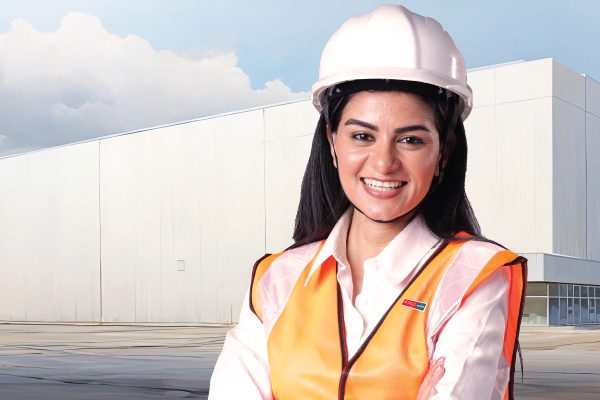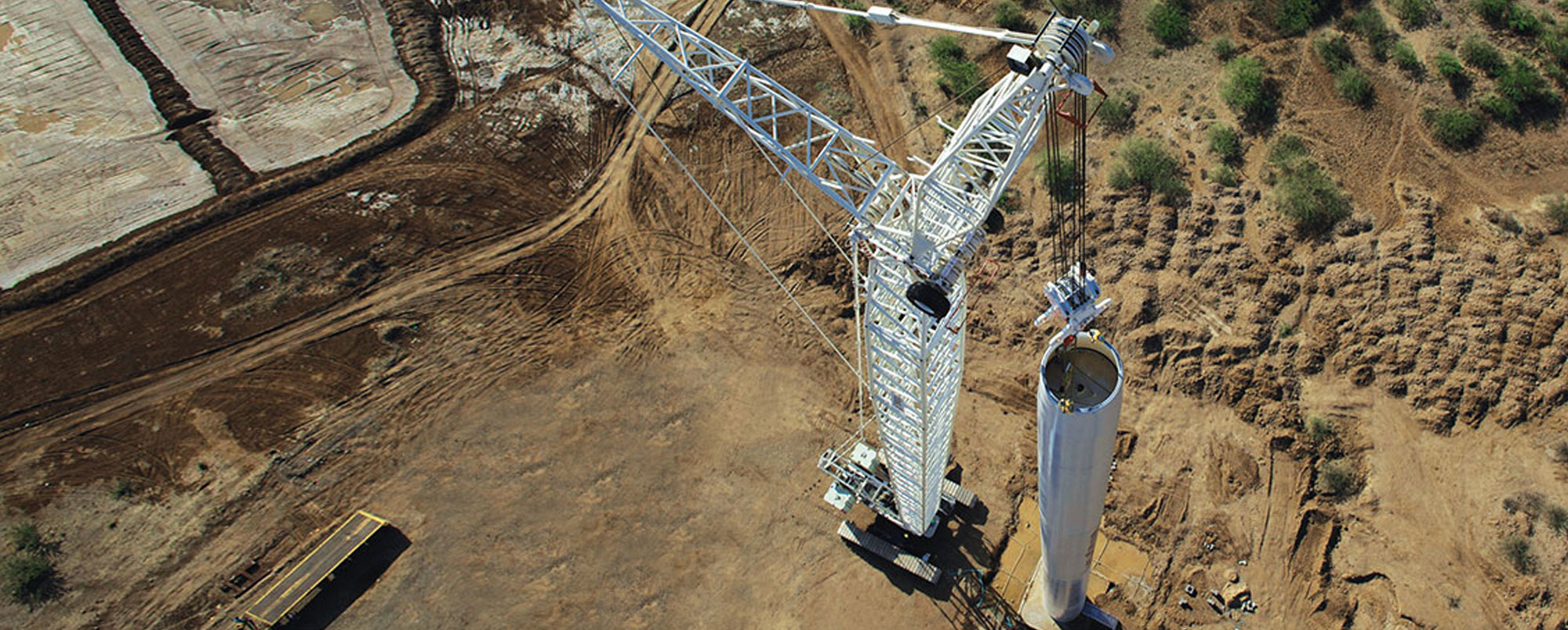Standing tallWith its all-round expertise in logistics, Allcargo’s reputation in crane rentals is growing stronger by the day
The business of crane rentals is closely linked to the fortunes of the diverse sectors it caters to. For some time now, a bulk of the demand in India has been coming from oil refinery projects that were ramping up production. With a slowdown in the sector, the focus has shifted elsewhere. Emerging opportunities in wind energy, urban construction and metro rail projects have lifted the spirits of crane rental providers and there are signs that demand will pick up well into the current year and beyond.
Allcargo Logistics has been expanding its scale of operations since the launch of crane rental services two decades ago and is geared up for the upcoming increase in demand with extensive and varied experience built over the years.”We are well equipped and ready to cater to all sectors. Refinery was an emerging market for cranes a few years back, and most of our cranes were deployed towards it. Last financial year the wind energy sector offered several projects. And if tomorrow the thermal energy sector requires our cranes, we have the resources and processes in place to deliver there, as well,” says Shibu Joseph, general manager-business development-project & engineering.
The Allcargo fleet of about 1000 plus equipment’s ranging from 130 plus cranes, trailers, hydraulic axles, Girder bridges , reach stackers and barges is ideal for lifting and executing any kind of load in industries ranging from steel and cement plants, oil refineries, wind energy sector, thermal power plants and other infrastructure projects like roads and bridges, metros, etc. This heavy duty fleet-comprising crawler, telescopic, and truck lattice cranes-have been sourced from renowned global OEMs such as Liebherr, Demag-Terex, Sany etc and covers sizes from 70MT to 750MT. Capable of operating in the most demanding work sites, these cranes are powerful, compact and manoeuvrable. Allcargo’s crane services come certified with best-in-class global safety standards such as ISO 9001:2008, OHSAS 18001:2007 and LEEA Certification (UK accreditation).This makes us a preferred partner for industry-leading clients (see box: Prime Mover).
Technology has played a big role in making cranes smarter and more efficient than before. Allcargo’s fleet, too, is equipped with the latest technology features such as anti-collision devices, variable drive, smart SLI and remote diagnostic capabilities that help monitor crane performance and identify faults. The men behind these machines – the crane operators – are highly skilled professionals who undergo hours of training before they take to the controls.
Onsite transportation of cranes can sometimes get challenging, given the remoteness and tricky nature of terrain at project sites and various rules maintained by each state in regards to entry and exit of cranes. Allcargo deploys special carrier and trailer trucks to transport these gigantic pieces of equipment across India, safely and on time. Special teams are constituted for complying with the regulations of each state. Allcargo owns over 200 hydraulic axles and pullers and more than 300 trailers and barges, which are used to support overall operations across client sites.
Allcargo also understands that keeping the cranes up and running is mission-critical for the clients, and downtime could mean precious business lost. Allcargo maintains an equipment storage and maintenance unit in Panvel near Mumbai in Maharashtra, where it undertakes regular and preventive maintenance of the cranes. This includes after-treatment of welding to increase the lifetime of the cranes. Hooks and latches are regularly inspected for signs of deformation or cracks due to regular wear and tear. Lines, tanks, valves, pumps and other parts containing air or liquid are checked for leakages. The booms are checked for structural damage. Allcargo technicians do this and more to ensure that the cranes are at optimal performance levels and ready for deployment even in the most difficult of work sites. “We have stringent safety standards. We conduct regular trainings for our people at the sites,” says Mr Joseph.
Specialised cranes face unique challenges as they move from one project site to another, with each application very different in nature, scope and complexity. The most common challenges are lack of good access roads, bad terrain conditions, transportation and local issues. “We tackle these by leveraging our relationships and partnerships with our customers,” says Mr Joseph.
Government regulation in each sector plays an important role in shaping demand for cranes. For example, the wind energy sector performed extremely well last year, so much so that there was a shortage of cranes to support the spurt in new installation projects. “Government policies such as generation based incentive (GBI) were favourable for the sector in assuaging depreciation to the tune of 80%. After GBI ends on 31 March 2017 & reduction in depreciation takes place, the sector may see a temporary slowdown in Q2 & Q3,” says Mr Joseph.
Shifts in these policies and withdrawal of incentives can affect a crucial aspect of the crane rentals business – continuity in deployment. “If a certain project ends, we need to have another in the pipeline to deploy these cranes for cost realization. Any change in government policies affects this cycle,” Mr Joseph explains.
On a positive note, aggressive targets by the government to grow wind energy generation capacity in India from 27GW last year to 60GW by 2022, should see more wind turbine installations across the country. We are confident that this will sustain demand for crane rentals in the wind energy space, along with greenfield and brownfield projects in other sectors like infrastructure, thermal, oil and refinery etc.
The opportunities, after all, are immense given India’s size and economic potential. “India is a growing nation. It needs many such projects and we are well positioned to support the “Make in India” growth story with our fleet of cranes and transport equipments,” says Sandeep Anand, CEO, Projects and Engineering, Allcargo.
Prime mover
- For expansion of its refinery capacity at Jamnagar in the Indian state of Gujarat, Reliance Industries needed over 1,000 cranes, of which around 45% were of medium to high capacity (less than 800MT) and sourced from India. Allcargo Logistics initially bagged an order for rental of 20 telescopic and crawler cranes in 2014. Happy with their performance, Reliance further asked Allcargo to submit a proposal for an additional 40 cranes which were deployed at the site. This figure further rose to 60 cranes during peak utilisation, making Allcargo a preferred vendor for the refinery’s J3 expansion project.
- Allcargo’s equipment also did some remarkable heavy lifting at the BPCL’s Kochi refinery in Kerala, India. Two units of a VGO reactor, each weighing 650MT, were lifted and erected. For the first time in the history of Allcargo operations, a Demag CC6800 with 1,200MT capacity was deployed at the site. Allcargo’s lifting professionals executed the plan and installed the reactor, all the while following highest standards of safety.
- In the last financial year, Allcargo installed 390 (Wind Turbine Generators) WTGs of approximately 700 MW, comprising of 16% of the total market share in the sector.














